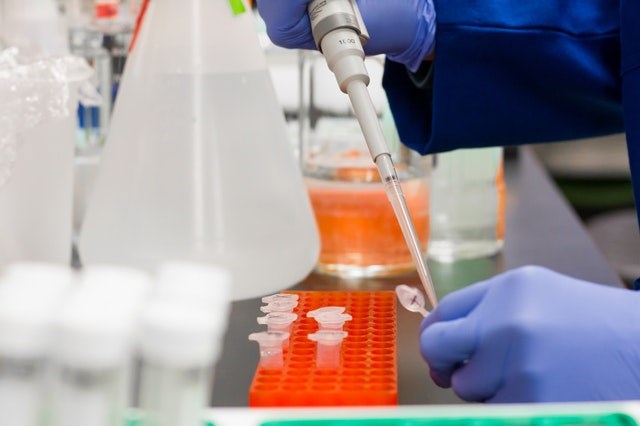Researchers Are Developing a Blood Test that Could Aid in Early Detection of Breast Cancer

Accord to the World Health Organization, breast cancer is the most common form of cancer found in women. Most types of breast cancer are treatable, and survival rates are very high amongst women who have been diagnosed so long as it is detected and treatment is started as soon as possible.
Unfortunately, breast cancer does not always show as normal symptoms, and can sometimes be misdiagnosed, causing it to go undetected until it is too late. Late detection can cause a decrease in the chance of surviving treatment or cause the patient to have a much more difficult road to recovery.
To try to help increase the chance of detecting breast cancer in its earlier stages, researchers at the University of Nottingham in the United Kingdom have started developing a blood test that they have hypothesized will detect specific antibodies to help diagnose breast cancer earlier and easier.
In order to develop the test, the team developed panels of tumor-associated antigens (TAAs) that are specific to breast cancer. This gave them the opportunity to screen for the blood for autoantigens that are associated with bodily responses to breast cancer-specific TAAs.
"The results of our study showed that breast cancer does induce autoantibodies against panels of specific [TAAs]," says study co-author Daniyah Alfattani, a doctoral researcher at the University of Nottingham.
Alfattani and her team believe the tests will be able to detect the presence of breast cancer in a patient up to five years before any physical symptoms begin to present.
To date, the team has created three panels of TAAs that have allowed them to screen for antibodies. From the three panels, they have determined that the more TAAs that are present, the most accurate the results are.
| # TAAs in Panels | % Positive Detection | % Negative Detection |
| 5 | 29% | 84% |
| 7 | 35% | 79% |
| 9 | 37% | 79% |
"We need to develop and further validate this test," says Alfattani. "However, these results are encouraging and indicate that it's possible to detect a signal for early breast cancer."
The next step for the team is to test blood samples from 800 people with breast cancer against panels with 9 TTAs. This will hopefully show more accurate results.
"A blood test for early breast cancer detection would be cost-effective, which would be of particular value in low and middle-income countries. It would also be an easier screening method to implement compared [with] current methods, such as mammography," explains Alfattani.
The goal is to have to test available to the public in the next 5 years.
Keywords: Doctors Locator, Durable Medical Equipment, Home Medical Equipment, Medical Equipment Centers, Medical Equipment Locator, Sleep Testing Centers
